|
by Rabbi Katy Z. Allen STOP! Such we are commanded each week. Stop taking from the land! Such we are commanded each seventh year. Why bother stopping? Perhaps to see. Perhaps to notice. Perhaps to discover if we care. Stopping draws us in. Opens us to new life. Deepens us to death. Reveals to us G!dness. Brings us home. Shanah tovah! May you have a year rich with wonders. Rabbi Katy Allen is the founder and rabbi of Ma'yan Tikvah - A Wellspring of Hope, which holds services outdoors all year long, and the founder and President pro-tem of the Jewish Climate Action Network-MA. She is a board certified chaplain and a former hospital and hospice chaplain. She received her ordination from the Academy for Jewish Religion in Yonkers, NY in 2005 and lives in Wayland, MA with her spouse, Gabi Mezger, who leads the singing at Ma'yan Tikvah.
0 Comments
by Thea Iberall The Amazon Rainforest is the most biodiverse region on Earth and provides shelter to three million species of plants and animals. Billions of trees absorb tons of carbon dioxide every year and produce 20% of earth’s oxygen. It’s been called the Lungs of the Earth. But I read something most disturbing. The Amazon rainforest is now emitting about a billion tons of carbon dioxide a year. From its role as a carbon sink, the lungs of the Earth have become a carbon source. Deforestation by fire of thousands of square miles a year is killing off trees. On average, 137 species of life forms die out every day in the rainforest. 137 species. I remember visiting the Hoh Rainforest on the Olympic Peninsula in Washington state. Though smaller than the Amazon Rainforest and with different kinds of trees, it’s an eerie sensation to stand in such a rich wet environment. I followed a trail deep into the Hoh and looked up. A Western redcedar pulsed upward in front of me. The forest floor was carpeted by epiphytic moss and Pacific oak ferns. An old Sitka spruce lay on the ground—now a nurse log birthing new trees and insects. A stand of western hemlocks and coast Douglas fir guarded like shomrim, reaching to the sky. I could hear the chirp of chipmunks running to my right. The whistle of a golden-crowned kinglet songbird broke the air as the rising sun layered the copse in purple and yellow light.
Plants and animals don’t grow in a vacuum. It’s all connected. Without forests, the birds can’t survive. Birds disperse seeds so that forests grow. They pollinate flowers. Many eat beetles that would otherwise decimate the forest. It’s their job. This is their office. We all have our jobs to do. It’s a delicate balance. When a species dies out, no one does its job. It’s like what happened in New York City in 1968. I had just started college. The city was exciting, alive. And then, there was a garbage strike. The sanitation workers wanted more money and for nine days, garbage began lining the streets. 100,000 tons of it. I remember walking along E. 56th Street. There were piles of trash reaching up to my chest level. I could make out egg shells, coffee grounds, milk cartons, orange rinds, empty beer cans, papers. The smell was disgusting wherever I went. The city was grinding incoherently to a stop. It was like the municipal cycle was stuck on an inbreath with a needed clothespin on its nose waiting in idle for relief. It’s all connected. What we are doing to the rainforests, to me, is a sin. We’re destroying the birds’ office—the very thing they built in the first place, the very thing that’s providing us with oxygen to breathe. We’re killing off species without thinking about who’s going to fill in the hole in nature’s cycles. I am grateful for JCAN’s voice which helps educate people about the problems caused by unthinking use of resources. In this time of Elul, we reflect on returning to spirit. We must all change and let go of beliefs that support an unsustainable lifestyle. A little thing is to not drink sun-grown coffee which kills trees and birds. A bigger thing is to stop eating red meat. Even bigger is making your own environment sustainable. Even bigger is to educate and advocate. This change in the Amazon rainforest is a tipping point. It is time to return to a true compass and work together. This is the heartbeat of life; this is the heartbeat of a planet. Photo credit: Heart of the Ancient Rainforest, by Linda Lundell. Limited edition giclee print. Thea Iberall, PhD, is on the leadership team of the Jewish Climate Action Network-MA. Iberall is the author of The Swallow and the Nightingale, visionary fiction about a 4,000-year-old secret brought through time by the birds. In this fable, she addresses the real moral issue of today: not whom you love, but what we are doing to the planet. Iberall is also the playwright of We Did It For You! Women’s Journey Through History – a musical about how women got their rights in America, told by the women who were there. Thea was inducted into the International Educators Hall of Fame for creative teaching methods. In her work, she bridges between heart and mind and teaches through performance, the written word, poetry, sermons, workshops, and storytelling. www.theaiberall.com. By Rabbi Michael Birnholz It's not novel or unique. Judaism is built on riding the energy of oscillations between values and experiences. From every day to holiness or transcendence/ein sof to shechinah/immanence or sadness/tsuris to joy/simcha, we flow from one state of being or perspective, generating energy as we move. One of these oscillations takes us from the big picture to the small detail and back again. We each have illustrations of this very motion, experiencing it in different times and places. In this Elul, in this time of reflection, I will carry a recent trip to Yosemite National Park in my heart and mind. On one afternoon, my family and I hiked to the base of the Lower Yosemite Falls. As we walked up, we could see the incredible thousands of feet of the full falls pouring down from the cliffs above. Taking in this magnificent, expansive sight, we could sense the age of this place, as the water cut into the granite, and the scale, as we could feel the height of the walls of the canyon and the power of the water rushing down into the river before us. Shortly after taking in the view of the falls, we followed the trail past a cluster of boulders and went down to the river bank. We delighted to take off our shoes and rest our feet in the cold glacial water. As the water rushed past, I reached down and scooped a handful of pebbles from the bottom of the river. I turned them in my hand, seeing the colors and shapes of these tiny pieces of rock, shaped over time by so many forces. From the immense size and power of the falls, here I was looking at these individual fragments of the mountains surrounding me. For me, during this season of reflection, this experience of the falls and the pebbles embodies the work I need to do. Take in the big picture, whether looking back at the past year or ahead to the approaching year of 5782. Then, narrow my focus. From that wide view, finding one detail or component that needs my awareness or attention. I must remember that it is not just seeing the two perspectives, its also gathering energy from the act of shifting back and forth. I can't settle on one but need both the dilation and contraction to make my way from one year into the next.
Rabbi Michael Birnholz arrived at Temple Beth Shalom in Vero Beach in 2002 following his ordination from Hebrew Union College-Jewish Institute of Religion. Over the almost 20 years that Rabbi Birnholz has been in Indian River County, he and his family have had a chance to grow in body, mind and spirit right along with Temple Beth Shalom. Rabbi Birnholz enthusiastically shares his ruach and koach -spirit and strength - with the many diverse generations and facets of the Jewish community. From the biblical garden to tot Shabbat, from Men's club breakfast to adult learning while making challah, Rabbi Birnholz's hope is to build Temple Beth Shalom into a House of wholeness, harmony and peace and see these efforts spread caring, compassion and justice to the whole Treasure Coast and beyond. By Rabbi Louis Polisson At the edge of the sea On the sand, on the stones, on the shells I stand In prayer But where should I look What am I supposed to see I want to contemplate The sea The reflections of the sun in her waves Illuminate and entice my eyes But the obligation of the East Onward, eastward Arises in my mind And draws me To turn away from the sea To turn around Facing the sun I long To believe and to witness The day when the sun and the sea Human and nature Will be as one On the same side Without directions No East or West Unified in the bond of life In God's image On that day Heaven and earth The supernal above and the mundane below Shall be one In experience In Divine Being And as for me, in my prayer I simply seek to fulfill my obligation But slowly, suddenly I know That I am standing in prayer On the beach At the edge of the sea At the edge of truth
by Maggid David Arfa
I want to speak about sin. Not the finger-wagging, chest-pounding, moralizing, holier-than-thou approach to sin that so often sounds like a harsh “bad dog!” rebuke. Nor the progressive counter approach that dodges shame altogether by teaching that sin is merely ‘missing the mark’; an oopsy-daisy moment where we gently rub our hearts and lull ourselves into believing that next year we will do better.
We have developed a whole new category of sins, sins against the Earth. I’d like to explore why they fall flat for me. They often sound like this: “For the sin of not buying local food when in season; for the sin of unnecessary travel; for the sin of using disposable products; for the sin of too much screen time (except for the really good shows)...Please forgive us”. Sound familiar? While personal responsibility is critically important, it is also woefully inadequate for the existential crisis we are facing. How do we remember that just as there is structural racism where laws and policies perpetuate white supremacy, so too there is also structural environmental degradation where our fixation on individual rights, private property and growth at all costs perpetuates the damage. These structural ‘sins’ inflict pain and anguish on us all. In addition, alert citizens also feel the pain of living in a world where the world’s scientists are ignored; where there is brazen, fantasy-inspired economic growth, where our political leaders spew vitriol and sow hatred for their political and financial gain. Where our ordinary shopping and travel choices carry high impacts and remind us that we also are perpetrators. Just as alert white people grapple with the painful guilt that white privilege brings, so too we all grapple with the pain and guilt our resource privilege brings. The mid-century conservationist, Aldo Leopold, named this when he said, “The price of an ecological education is to live in a world filled with wounds”. How do we address these soul injuries, these moral wounds? This is the atonement, ‘at-one-ment’, I seek to address. I find this wounding can erode my hope, my action and spiral me into paralysis. My hopelessness can infect me and those around me. I’m wondering how Teshuvah might support us back into wholeness with renewed resilience and a strengthened moral center. Ready us to tackle the challenges of the day with renewed zeal, zest and fortitude. After all, our birthright as children of the prophets is to strive for not only moral courage (dayenu!) but moral grandeur and spiritual audacity!3 Praying for forgiveness for 50 simple sins won’t save the earth or ourselves. Saying ‘I’ll try harder next year’, while important for raising awareness, just doesn’t cut it. What ancient guidance might be available for us to address the hidden pain of moral wounding? Reb Zalman reminds us of the flavor and nuance found in the Hebrew word ‘Avera’. The small English word sin is a pale echo. ‘Avera’ means to transgress under duress (literally to cross over and has the same root letters as our name, Hebrews). Here seems to be a door opening. Traditionally, this referred to breaking mitzvot under forced conversion or enslavement Today, foundational values like reverence for fresh water and air, conserving biodiversity, welcoming the stranger, care for public health, and basic kindness are transgressed against our will. The impact, like poison, seeps into my soul, my being, and my hopelessness deepens. We know the remedy for an Avera. Teshuvah! We acknowledge what we are seeing and feeling and confess. We make the time and space to express fully our pain, anguish, remorse, guilt, grief and anger; wherever they lead. Sharing with people who can listen without judging helps us overcome our despair driven lethargy and begin anew. Repeat as necessary. The Rabbis encourage us to trust that sharing openly is healing. That afterwards we will remember our interconnectedness with each other and the Web of Life; the Source of Being. In this way, our moral centers become openly engaged and strengthened, our resilience deepens and new found fortitude helps us forge the road ahead. This is the Teshuvah I seek. 1 From p29- Yom Kippur Kattan and the Cycles of Teshuvah, Aleph, 1999 2 From p78- Moral Injury: Restoring Wounded Souls. Abingdon Press, 2017 3 Telegram to President Kennedy: TO PRESIDENT JOHN F. KENNEDY, THE WHITE HOUSE, JUNE 16, 1963. I LOOK FORWARD TO PRIVILEGE OF BEING PRESENT AT MEETING TOMORROW AT 4 P.M. LIKELIHOOD EXISTS THAT NEGRO PROBLEM WILL BE LIKE THE WEATHER. EVERYBODY TALKS ABOUT IT BUT NOBODY DOES ANYTHING ABOUT IT. PLEASE DEMAND OF RELIGIOUS LEADERS PERSONAL INVOLVEMENT NOT JUST SOLEMN DECLARATION. WE FORFEIT THE RIGHT TO WORSHIP GOD AS LONG AS WE CONTINUE TO HUMILIATE NEGROES. CHURCHES SYNAGOGUES HAVE FAILED. THEY MUST REPENT. ASK OF RELIGIOUS LEADERS TO CALL FOR NATIONAL REPENTANCE AND PERSONAL SACRIFICE. LET RELIGIOUS LEADERS DONATE ONE MONTH’S SALARY TOWARD FUND FOR NEGRO HOUSING AND EDUCATION. I PROPOSE THAT YOU MR. PRESIDENT DECLARE STATE OF MORAL EMERGENCY. A MARSHALL PLAN FOR AID TO NEGROES IS BECOMING A NECESSITY. THE HOUR CALLS FOR HIGH MORAL GRANDEUR AND SPIRITUAL AUDACITY. Abraham Joshua Heschel (bold added) Maggid David Arfa is both a storyteller and a storylistener. He has retrained as a Spiritual Care Counselor and has completed four units of Clinical Pastoral Education (CPE). Each unit of CPE provides 400 hours of professional education in a multi-faith setting and direct experience in providing spiritual care to people in crisis. David is experienced providing spiritual care for end of life transitions, major physical challenges, mental health crisis and substance use issues. He has developed specialties in trauma and the body, grief support and providing spiritual care for the non-religious. He is currently working with Baystate Hospice. David continues to tell stories and lead contemplative Shabbat hikes at the High Ledges Audubon Sanctuary in Shelburne, MA. by Rabbi Ariel Wolpe
Midrash Tanhuma teaches that when the Holy One began to create the world, the Holy One did so as a child grows within the mother. Just as an embryo begins as a small cell and then expands in all directions, so too the world was created from a single point—from even shtiya, the foundation or “drinking” stone. This stone is the naval of the earth, nourishing us and connecting us to Divine Mother. According to Rabbi Eliezer, this occurred on the twenty-fifth of Elul. Rosh Hashannah is the birthday of humanity—Adam formed from dust—but Elul is when life first flowed from the even shtiya. During Elul we experience the earth for its beauty and power independent of humankind, remembering a time before we became its stewards. We imagine rivers flowing from the foundation rock throughout the earth, expanding and growing as a fetus, forming each unique species. A macrocosm of our own womb journeys. A part of this sacred body, we connect to the Holy One through a cord flowing with life. Rabbi Ariel Root Wolpe is a mother, musician, and founder and director of Ma'alot, an emergent spiritual community in Atlanta, GA. She just released Ruach Neshama, a spiritual album through Hadar’s Rising Song Institute. |

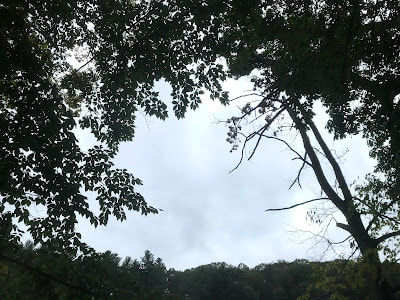
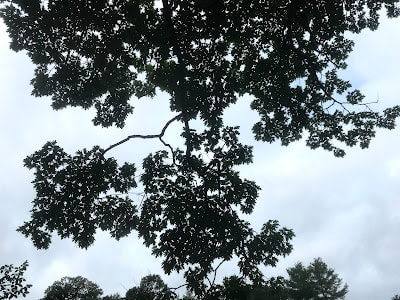
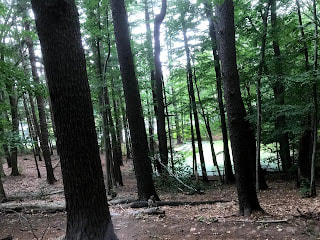
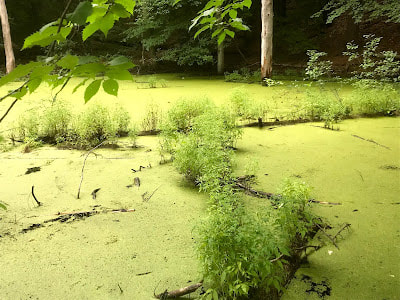
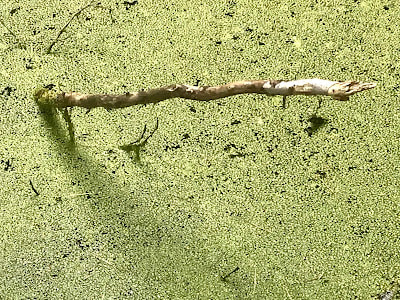
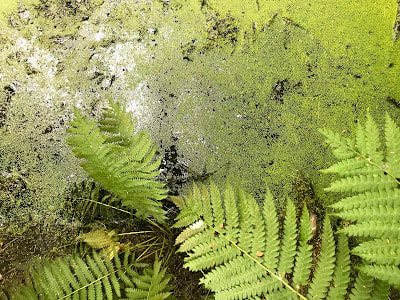
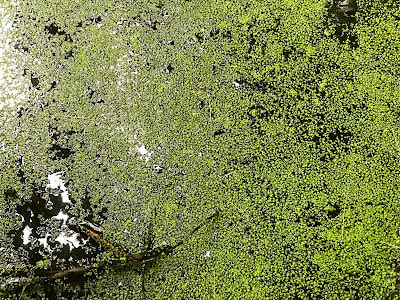
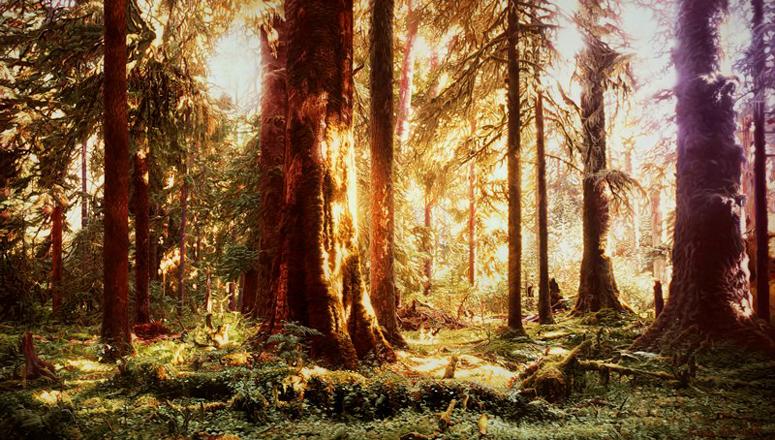
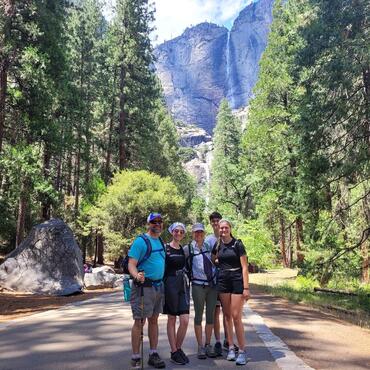
 RSS Feed
RSS Feed